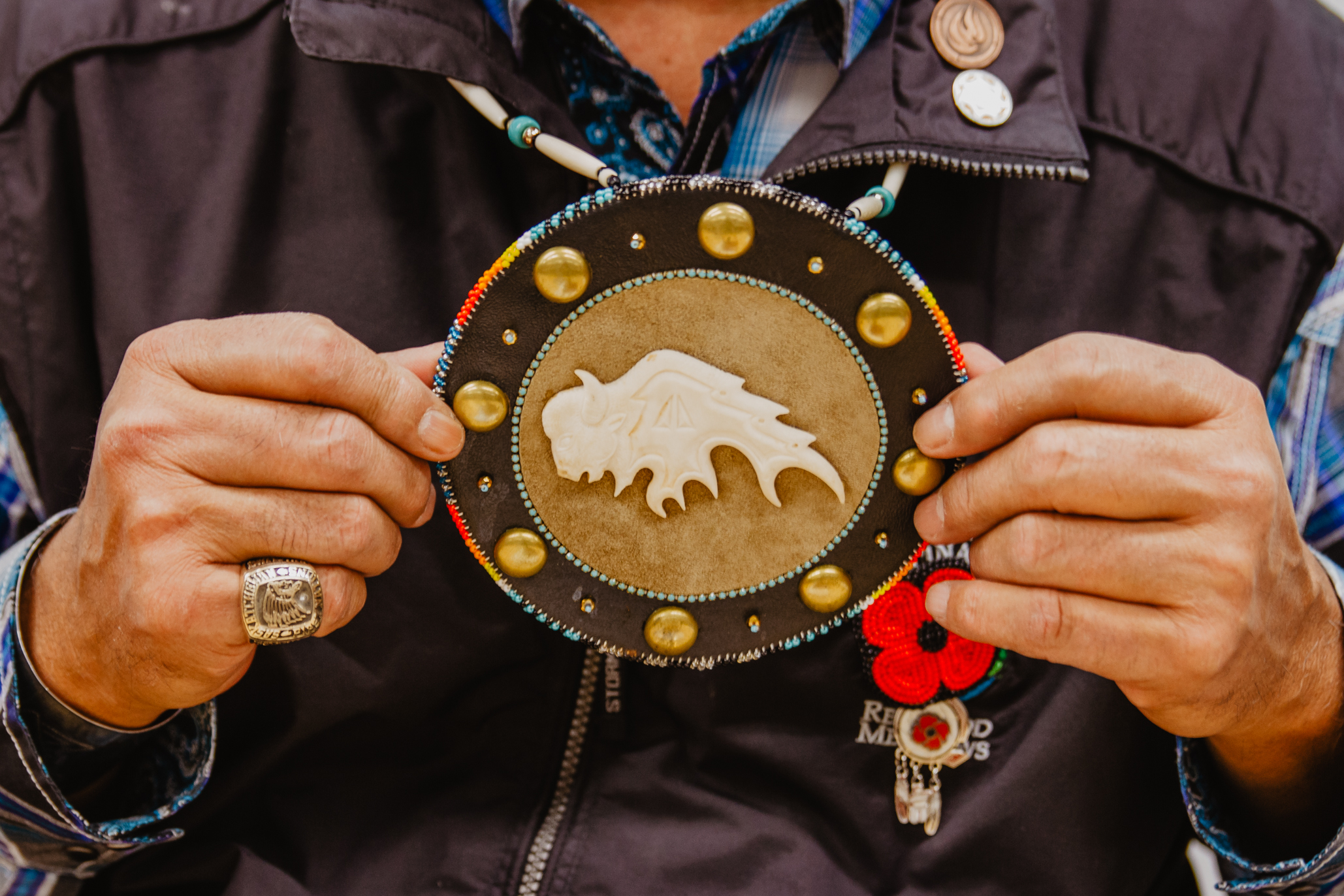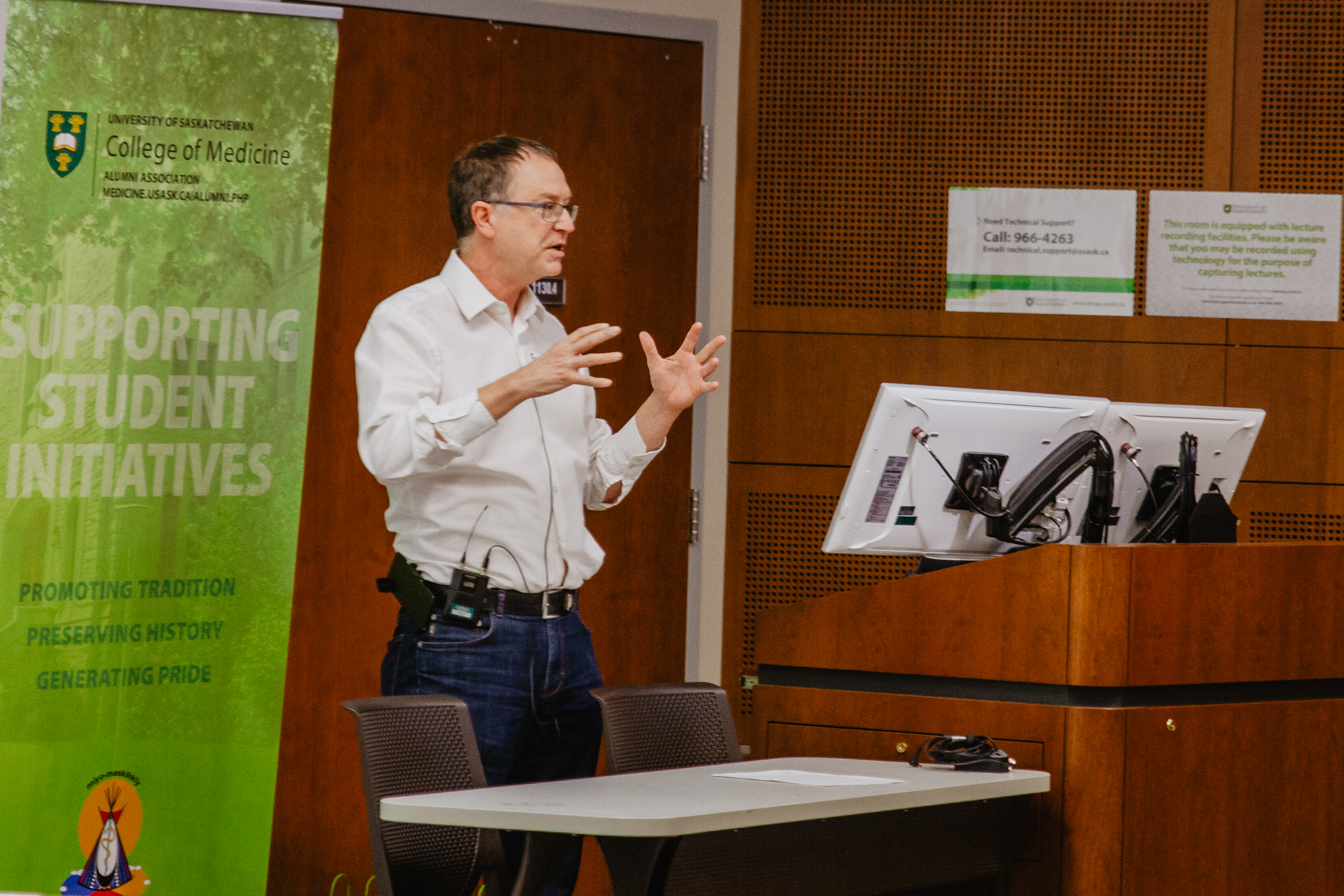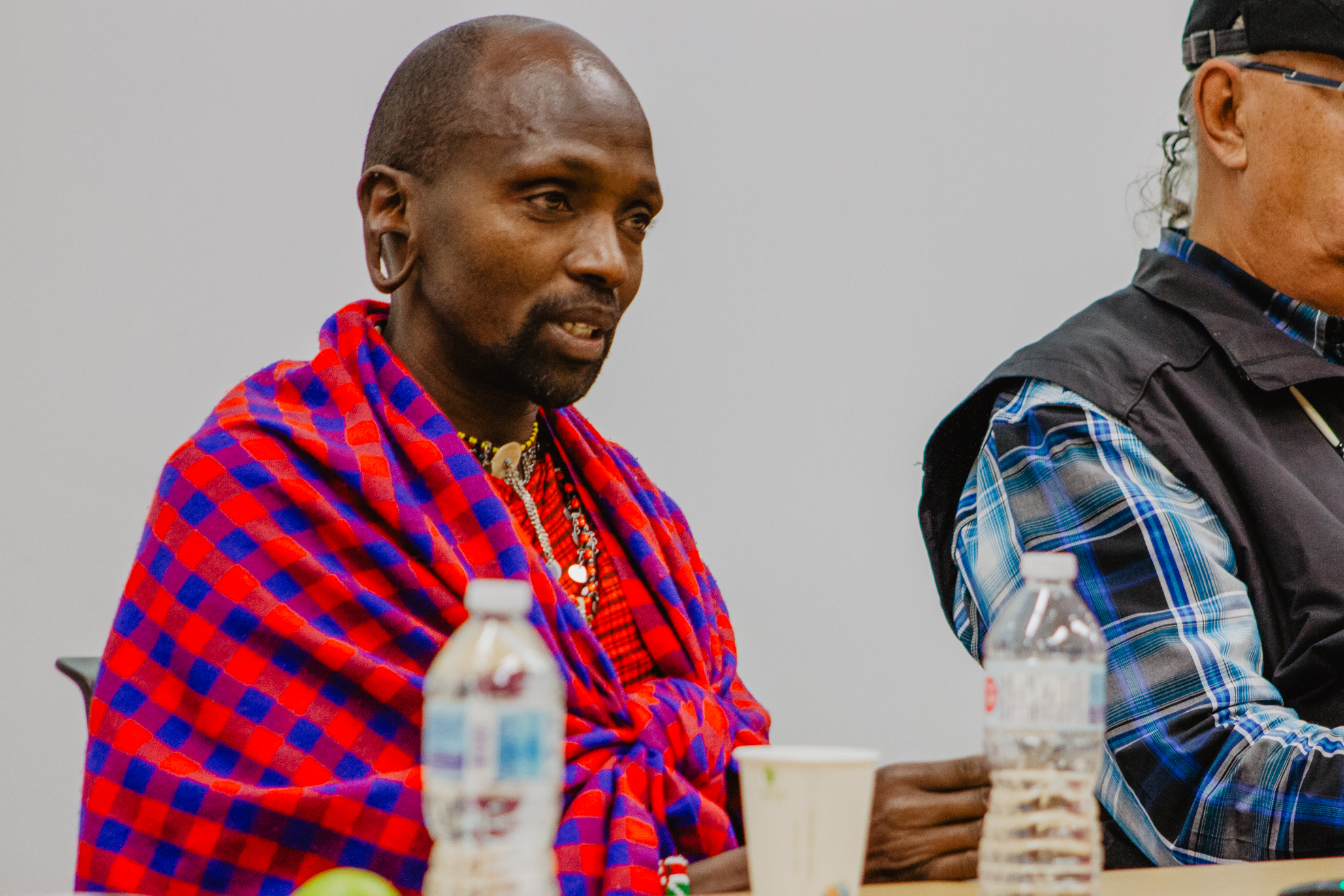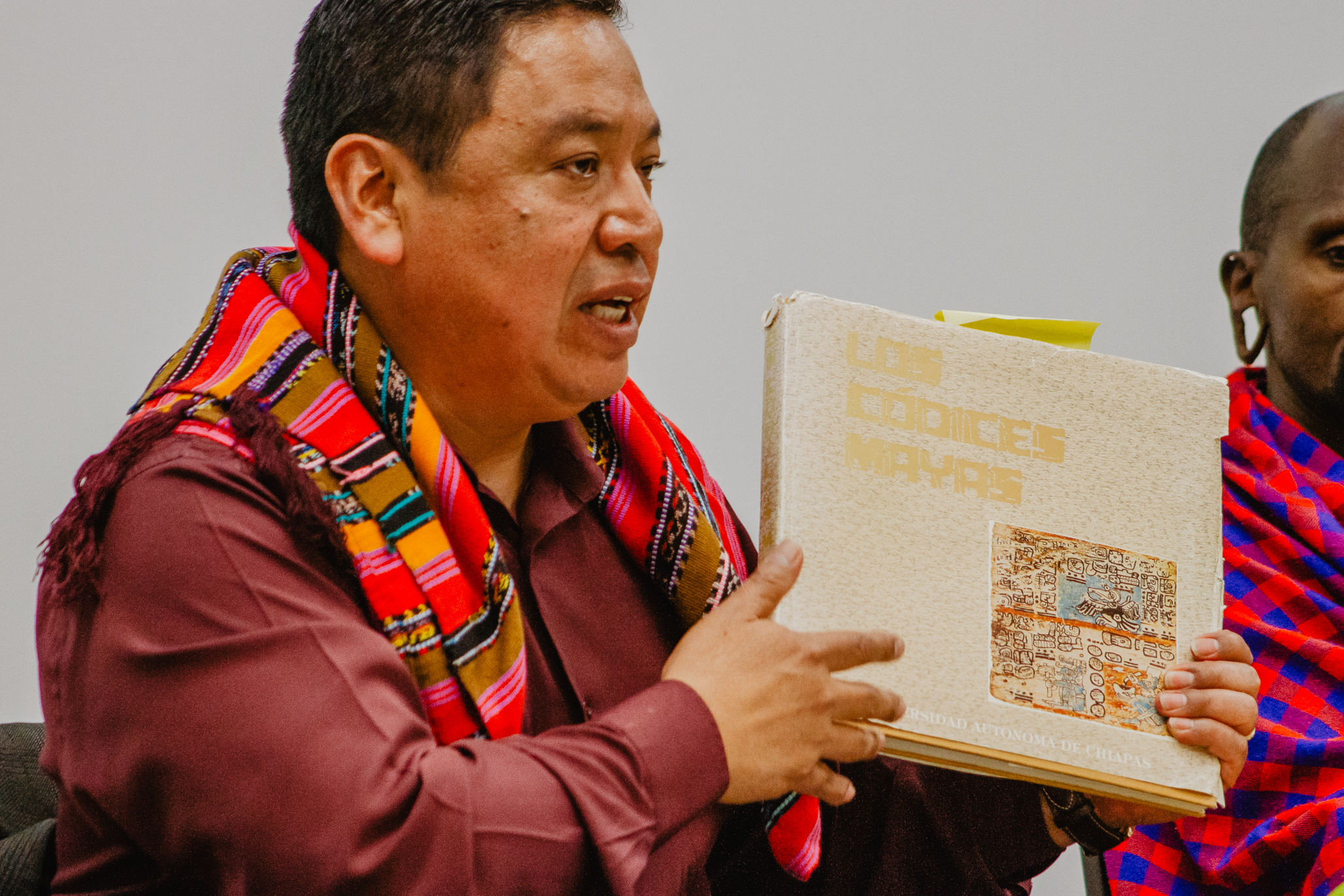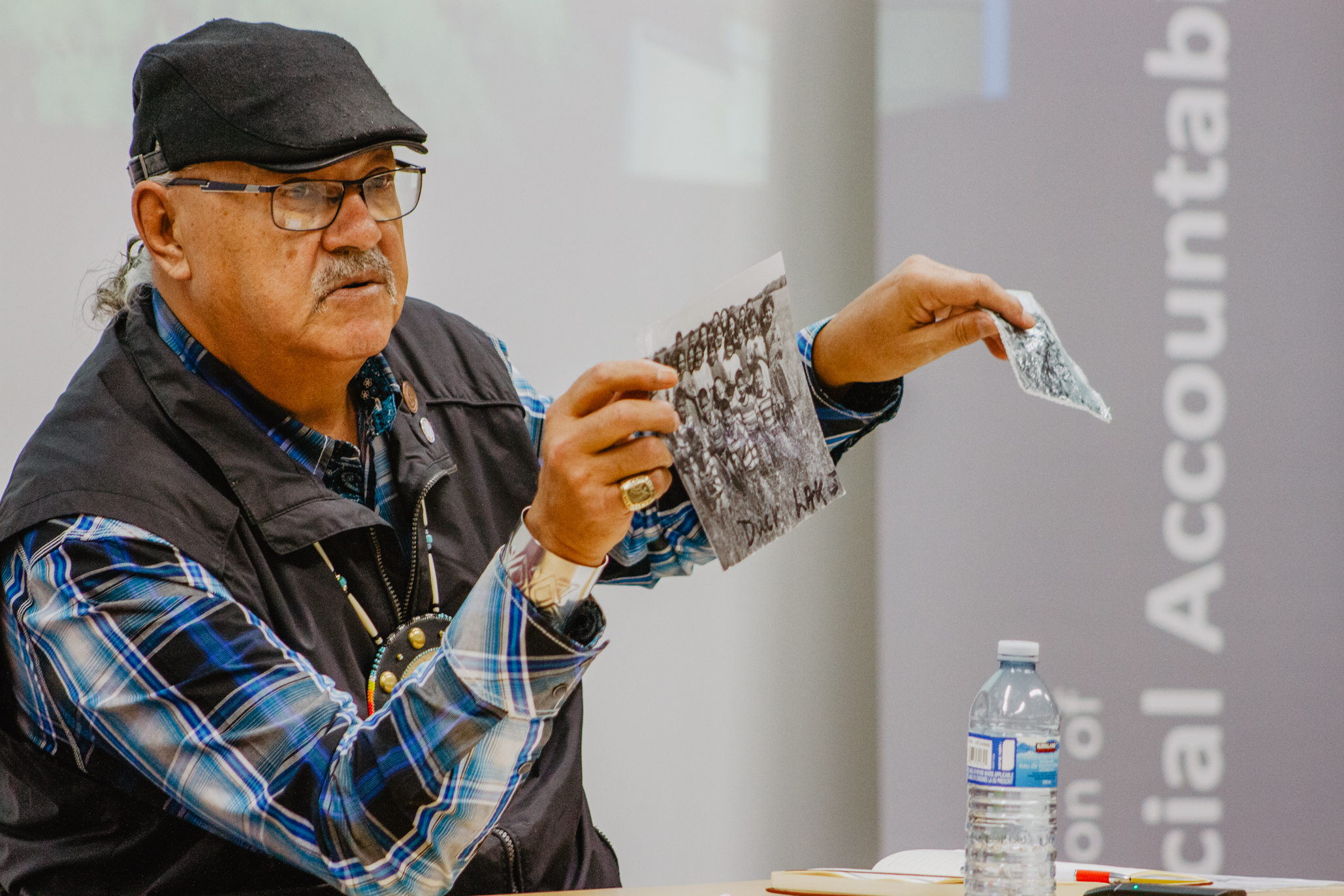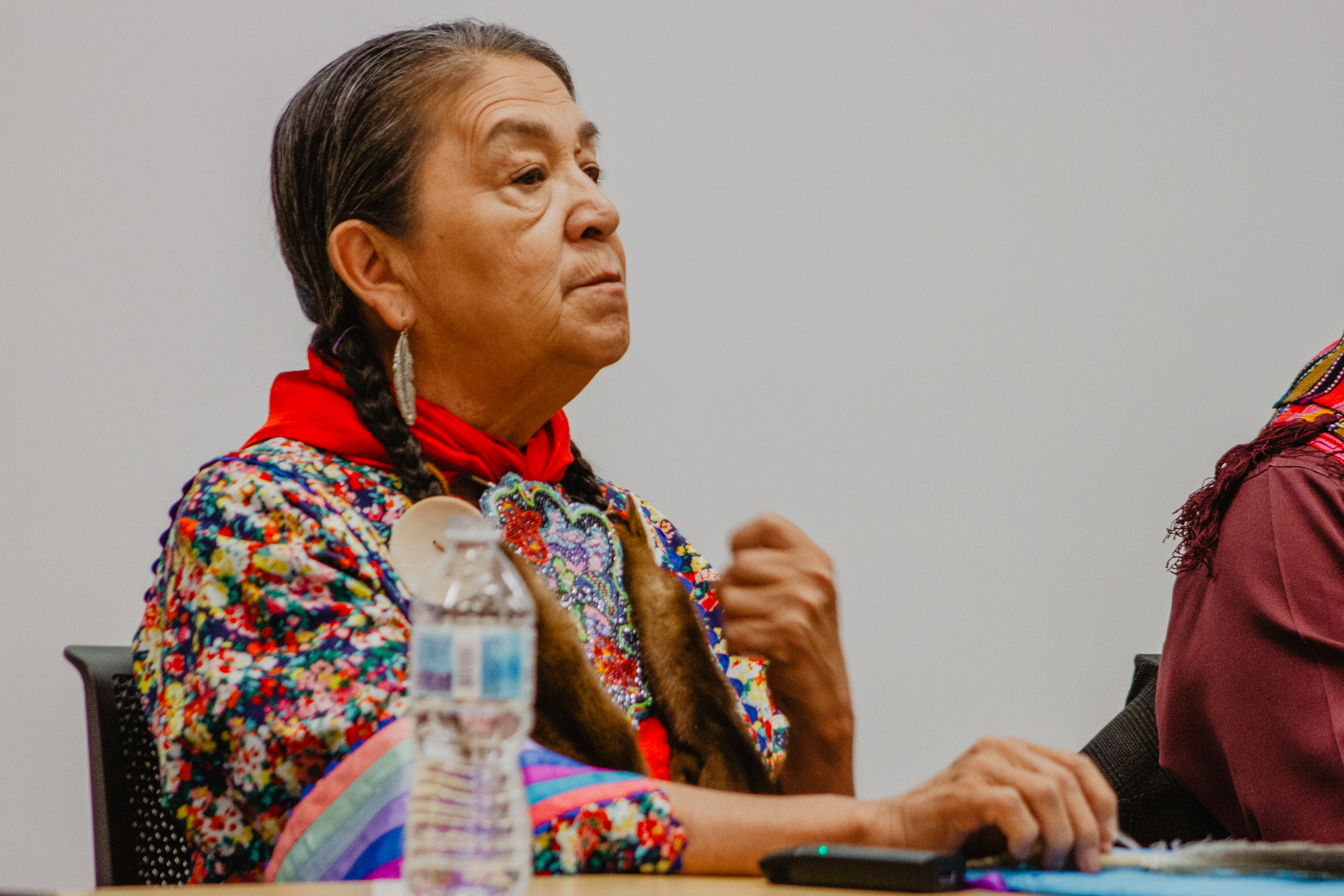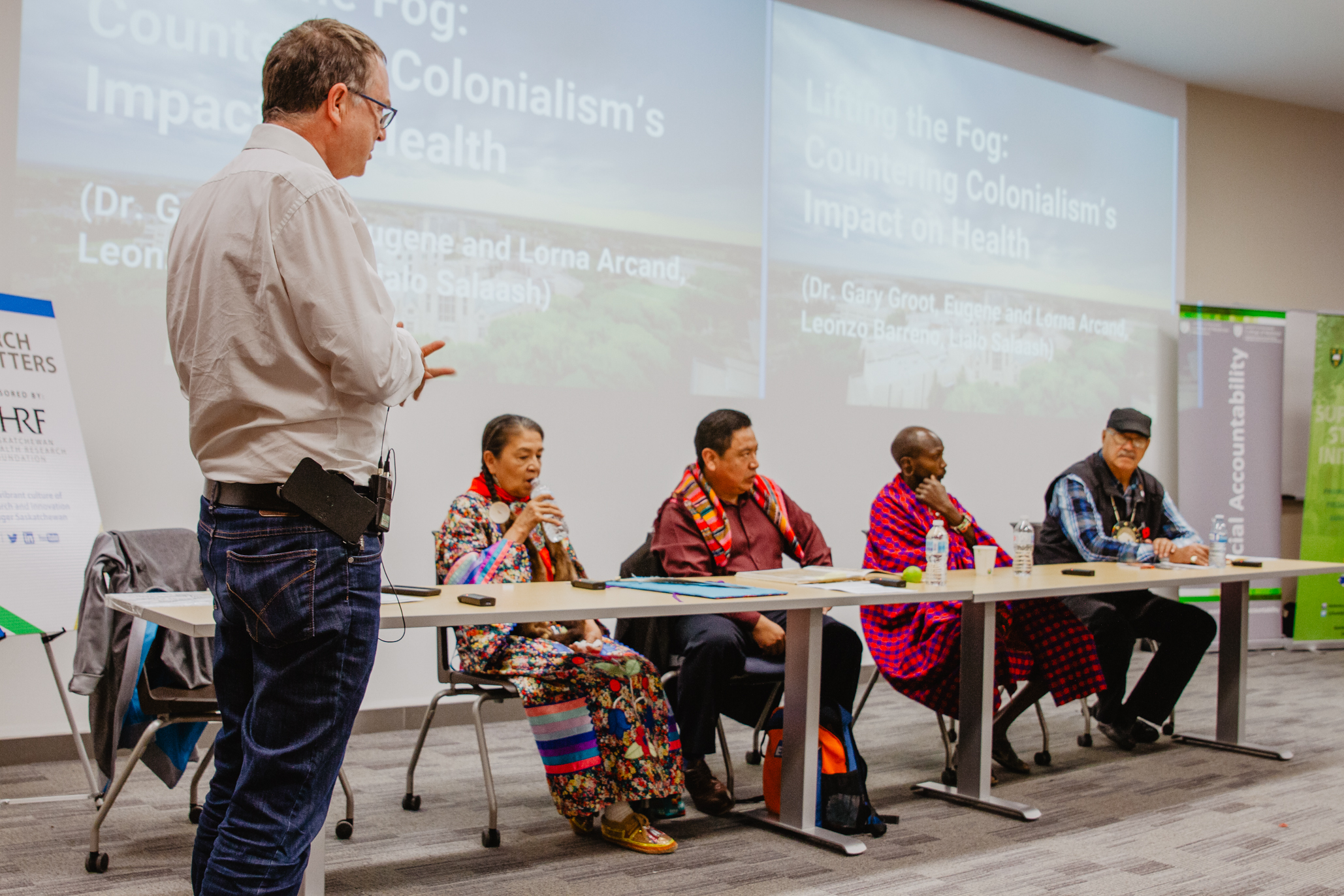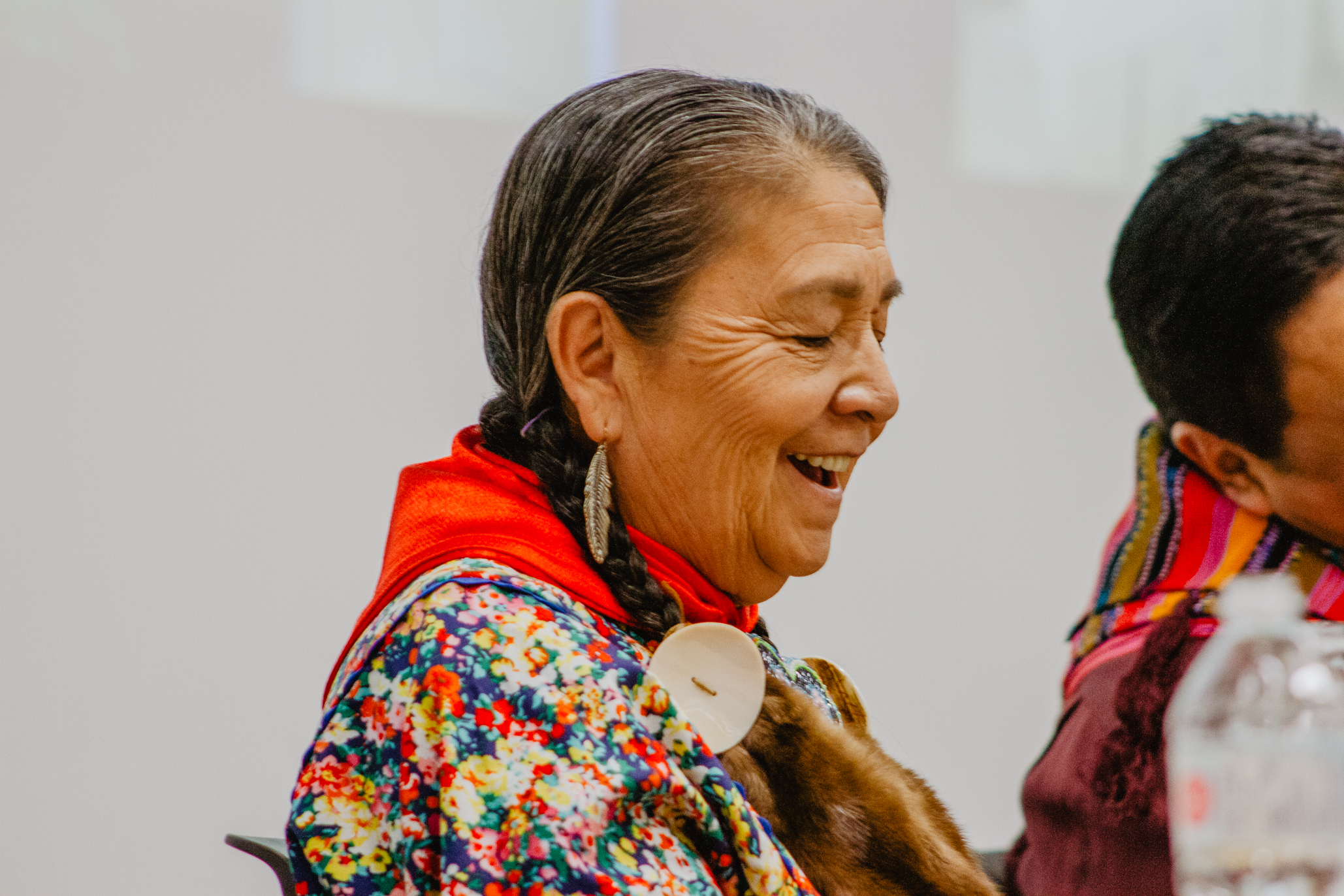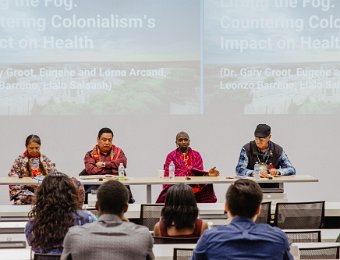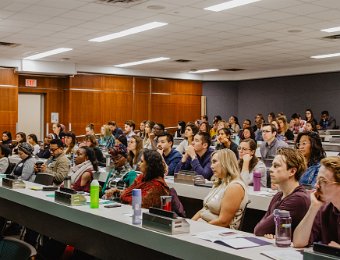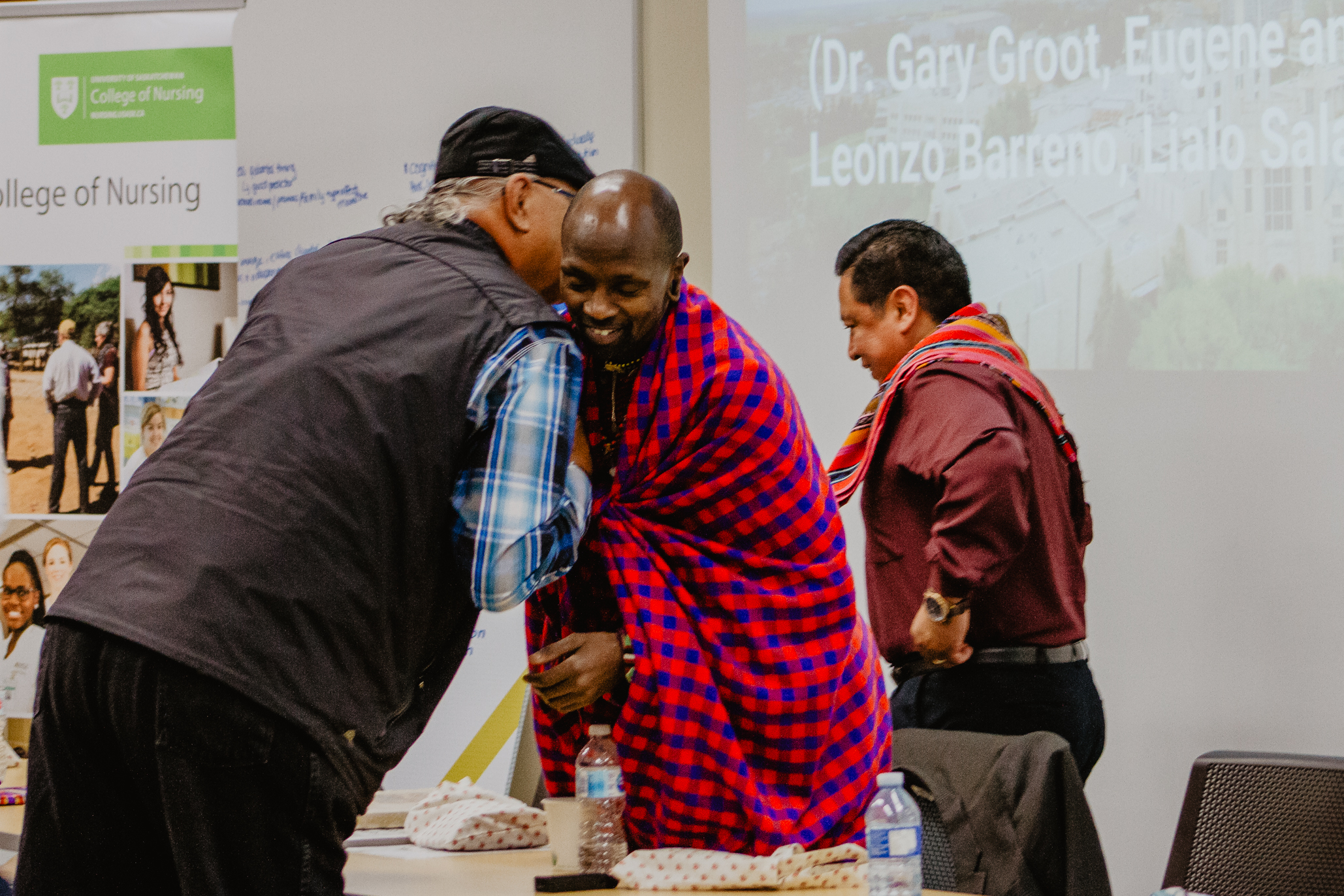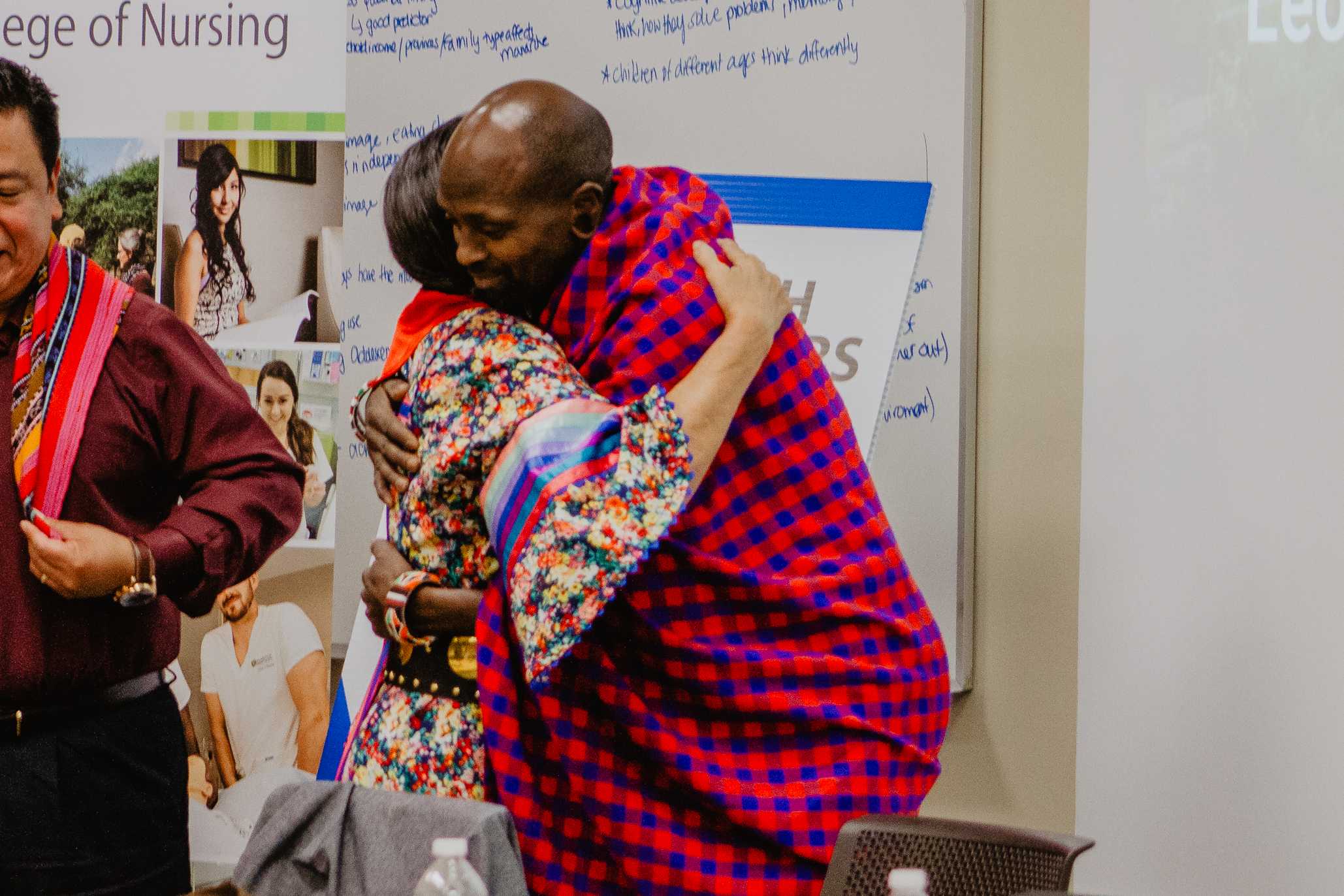Lifting the Fog: Countering Colonialism’s impact on health from Maasai Mara, to Muskeg Lake to the Mayan of Quezaltenango
A feature panel discussion at the College of Medicine’s 7th annual Global Health Conference
Dr. Gary Groot (Moderator), Lorna and Eugene Arcand, Lialo Salaash, Leonzo Barreno
“Colonialism is the massive fog that has clouded our imaginations regarding who we could be, excised our memories of who we once were, and numbed our understanding of our current existence. ”
Colonialism has had an inter-generational impact on health and well-being and is a legacy Indigenous populations globally confront. In this panel discussion moderated by Dr. Gary Groot, three communities, worlds apart, share their stories of resistance, resurgence and healing against the larger backdrop of improving health equity for Indigenous peoples.
Indigenous Patients and Cancer Care
Lorna and Eugene Arcand are Cree community members from the Muskeg Lake First Nation and longtime Indigenous leaders and advocates in Saskatchewan. Eugene is a residential school survivor and Lorna is a cancer survivor. Together they have shared their experiences and provided valuable guidance and insight as partners of Dr. Gary Groot on a number of Indigenous cancer care research initiatives that focus on improving the relationship and dynamics between health care providers and Indigenous patients.
The Oltumo Maasai Project
Like their Indigenous counterparts in Canada and around the world, the Maasai Mara tribe, has felt the direct and long-lasting impact of colonialism on their traditional and sustainable way of life, their land, identity, sovereignty, health and well-being. Lialo Salaash, based in the Oloolaimutia region on the Kenyan side of the Maasai Mara National Reserve, is part of an international collaborative effort that emphasizes community-guided change to address the social determinants of health.
Modern Day technology on Mayan Culture, Health and Livelihood
As Leonzo Barreno explains, colonialism infiltrated all aspects of his Mayan Culture from religious beliefs to health. Traditional values are passed down orally through Mayan people but with the introduction of social media, healers and spiritual leaders now find themselves under constant pressure to keep up with these rapid changes. This is leading to inter-generational tension, male domination (with younger men challenging the roles of the older generations and trying to capitalize on Mayan culture through cultural tourism and cultural appropriation.) Today, Mayan people are reclaiming their identities and cultural beliefs and practices in spite of these outside and modern-day challenges.
Dr. Gary Groot is a surgical oncologist and a community based health researcher based out of the University of Saskatchewan. One of his health research streams focuses on creating culturally appropriate supports for Indigenous patients moving through the provincial cancer care system.

